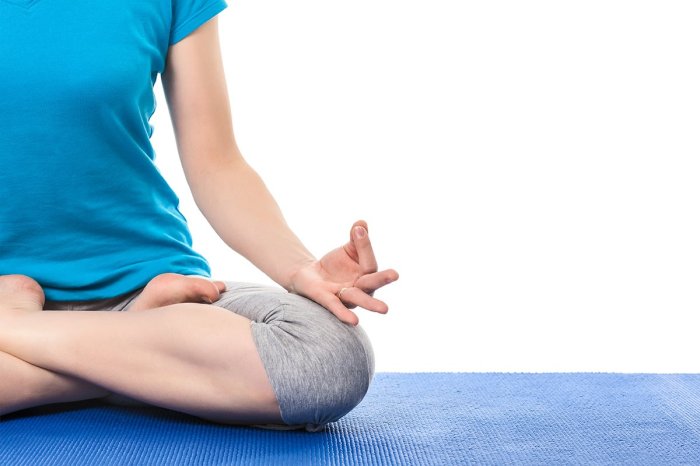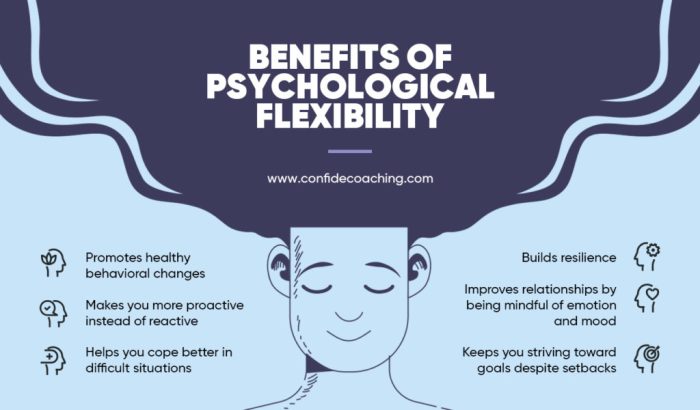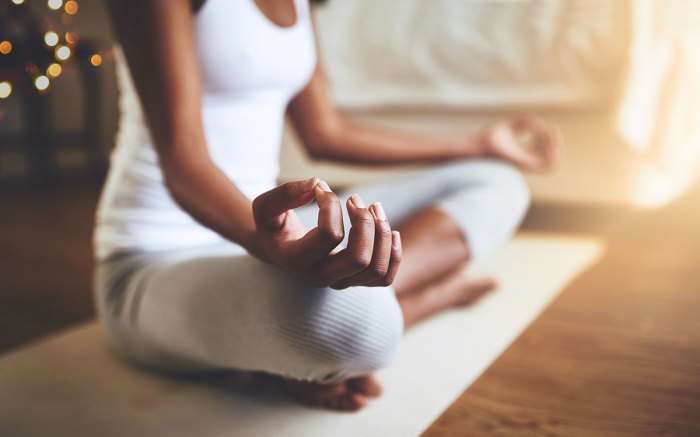Kicking off with How to Meditate for Developing Emotional and Mental Flexibility, get ready to unlock the secrets of mastering your mind like a true guru of zen. Dive into the world of meditation and discover the power it holds in shaping your emotional and mental flexibility.
Learn how to navigate the realms of your mind with finesse and grace, as we delve into the art of meditation for ultimate mental agility. Get ready to transform your daily life with the magic of mindfulness and meditation techniques that will leave you feeling empowered and centered.
Introduction to Meditation for Emotional and Mental Flexibility

Emotional and mental flexibility in the context of meditation refers to the ability to adapt and respond to various situations with openness, resilience, and clarity. It involves being able to manage and regulate emotions effectively, as well as having a nimble mind that can navigate challenges and changes with ease.
Feeling low on energy? Meditation can help recharge your batteries. By practicing specific techniques, you can boost your vitality and enthusiasm. Discover 7 Tips for Meditating to Increase Your Energy and start feeling more vibrant and alive every day.
The importance of developing emotional and mental flexibility through meditation cannot be overstated. By cultivating these qualities, individuals can enhance their overall well-being, reduce stress, improve relationships, and make better decisions. Meditation provides a space for individuals to observe their thoughts and emotions without judgment, allowing them to develop a greater sense of self-awareness and emotional intelligence.
When it comes to self-discovery, meditation can be a powerful tool. If you’re looking to explore your inner self and unlock hidden truths, check out these 7 Essential Tips for Meditating for Self-Discovery. These techniques can help you delve deep into your mind and spirit to uncover new insights about yourself.
Benefits of Emotional and Mental Flexibility
- Mental Clarity: Meditation helps clear the mind and improve focus, enabling individuals to think more clearly and make sound decisions even in challenging situations.
- Stress Reduction: Developing emotional and mental flexibility through meditation can lower stress levels and increase resilience in the face of adversity.
- Enhanced Relationships: By fostering emotional intelligence and empathy, meditation can lead to better communication and deeper connections with others.
- Adaptability: Practicing meditation regularly can increase one’s ability to adapt to change and handle unexpected events with grace and composure.
Benefits of Meditating for Emotional and Mental Flexibility: How To Meditate For Developing Emotional And Mental Flexibility

Meditation has numerous benefits when it comes to enhancing emotional and mental flexibility. It can help individuals better manage their emotions, reduce stress, improve focus, and increase overall well-being. Here, we will delve into the specific advantages of meditation in fostering emotional and mental flexibility.
Looking to connect with your higher self and tap into your inner wisdom? Meditation is the key. By quieting your mind and focusing inward, you can establish a deep connection with your higher self. Explore How to Meditate to Connect with Your Higher Self for valuable insights and spiritual growth.
Reduced Stress and Anxiety Levels
- Meditation has been shown to lower cortisol levels, the stress hormone, leading to a decrease in overall stress and anxiety.
- Regular meditation practice can help individuals develop a sense of calmness and inner peace, allowing them to navigate challenging situations with more resilience.
Improved Emotional Regulation
- By engaging in meditation, individuals can learn to observe their emotions without reacting impulsively, allowing for better emotional regulation.
- Practicing mindfulness through meditation enables individuals to respond to emotions in a more thoughtful and controlled manner, leading to improved emotional flexibility.
Enhanced Cognitive Function, How to Meditate for Developing Emotional and Mental Flexibility
- Studies have shown that meditation can improve cognitive functions such as attention, memory, and decision-making, which are essential for mental flexibility.
- Regular meditation practice can increase grey matter in the brain, particularly in regions associated with self-control and emotional regulation.
Greater Adaptability to Change
- Individuals who meditate regularly tend to adapt more easily to changes in their environment or circumstances, demonstrating increased mental flexibility.
- Through meditation, individuals can cultivate a growth mindset, which allows for a more adaptive and resilient approach to challenges and setbacks.
Techniques for Meditating to Develop Emotional and Mental Flexibility

Developing emotional and mental flexibility through meditation requires specific techniques that target these aspects of your well-being. By incorporating these practices into your routine, you can enhance your ability to adapt to challenging situations and regulate your emotions effectively.
Mindfulness Meditation
- Find a quiet and comfortable space to sit or lie down.
- Focus on your breath, observing its natural rhythm without trying to control it.
- Notice any thoughts, emotions, or sensations that arise without judgment, simply acknowledging them and letting them pass.
- Bring your attention back to your breath whenever you get distracted, cultivating a sense of presence and awareness.
- Practice this regularly to improve your ability to stay grounded and calm in the face of adversity.
Loving-Kindness Meditation
- Sit in a comfortable position and close your eyes.
- Begin by directing feelings of love and kindness towards yourself, repeating phrases like “May I be happy, may I be healthy, may I be safe, may I live with ease.”
- Extend these feelings towards others, starting with loved ones, then acquaintances, and eventually towards all living beings.
- Cultivate a sense of compassion and empathy, fostering positive emotions that enhance your emotional flexibility.
Body Scan Meditation
- Lie down in a comfortable position and close your eyes.
- Start by bringing your awareness to the sensations in your toes, then gradually move up through each part of your body.
- Notice any areas of tension or discomfort, allowing yourself to release and relax as you progress through the scan.
- By tuning into your body’s signals, you can develop a deeper connection between your physical sensations and emotional responses.
Success Story
“Through consistent practice of mindfulness meditation, I have been able to navigate stressful situations with greater ease and clarity. By cultivating a sense of awareness and acceptance, I have enhanced my emotional and mental flexibility, allowing me to respond to challenges with a calm and balanced mindset.”
Tips for Incorporating Meditation into Daily Routine

Meditation can be a powerful tool for developing emotional and mental flexibility, but it can be challenging to make it a consistent part of your daily routine. Here are some practical tips to help you establish a regular meditation practice and reap the benefits it offers.
Set a Specific Time
- Choose a specific time of day that works best for you to meditate, whether it’s in the morning before starting your day or in the evening before bed.
- Setting a consistent time will help you form a habit and make it easier to incorporate meditation into your daily routine.
Start Small
- Begin with short meditation sessions, even just a few minutes a day, and gradually increase the duration as you become more comfortable with the practice.
- Starting small can help you avoid feeling overwhelmed and make meditation more manageable in the long run.
Eliminate Distractions
- Find a quiet and peaceful space where you can meditate without distractions, such as turning off your phone or finding a secluded corner in your home.
- Minimizing distractions will allow you to focus better during your meditation sessions and enhance the benefits of the practice.
Be Patient with Yourself
- Remember that developing a regular meditation practice takes time and patience, so be kind to yourself if you miss a session or struggle to stay focused.
- Approach meditation with a gentle and forgiving attitude, understanding that consistency is more important than perfection.
As we wrap up our journey into the world of meditation for developing emotional and mental flexibility, remember that the key to unlocking your true potential lies within your own mind. Embrace the power of meditation and watch as your emotional and mental resilience soar to new heights. Start your meditation practice today and pave the way for a brighter, more flexible future ahead.